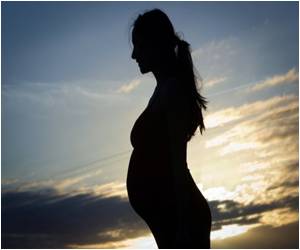- Hormonal intrauterine device is a birth control method that releases a small amount of a progestin hormone called levonorgestrel each day
- New mothers often delay the implantation of hormonal IUDs as it may affect breastfeeding
- Now, a new study has found that early implantation of hormonal IUDs do not affect breastfeeding, suggesting it as a safe birth control method
Hormonal Intrauterine Device Does Not Interfere with Lactation
The new study found that lactation was not affected if women received a hormonal IUD immediately after giving birth compared to women who received the same type of IUD several weeks after delivery.
Eight weeks after delivery, women with IUDs continued to breastfeed equally as well as women who did not have the birth control.
The research team conducted a randomized study at clinics in Salt Lake City, Utah and Albuquerque, N.M. The participants were divided into two groups. The first group comprised of 132 women who received a hormonal IUD within 30 minutes of delivery. The second group comprised of 127 women who received a hormonal IUD 4 to 5 weeks after delivery.
Women who received IUDs immediately after birth had a higher rate of losing the device (19%) compared to the women who received them later (26%).
"New mothers have to juggle the competing priorities of a new or growing family, and it is difficult to schedule postpartum appointments," said co-author Jessica Sanders, Ph.D., research assistant professor of Obstetrics and Gynecology at U of U Health. "Women are already at the hospital for the delivery and receiving the IUD at this time is more convenient."
Prenatal care is an ideal time for medical experts to speak about long-term birth control. Turok notes the children born to the women in both groups were healthy and thriving, but the lack of specific data on infant outcomes was a limitation to the study.
"This study shows no difference in breastfeeding outcomes [for women in either group], which is critically important in reassuring women and advocates that a hormonal IUD empowers women to avoid unintended pregnancy and to successfully breastfeed their infants," said senior author Eve Espey, M.D., chair of the Department of Obstetrics and Gynecology at the University of New Mexico School of Medicine. "We hope this study contributes to improving access to this highly safe and effective long-term contraceptive method."
The findings of the study are published in the American Journal of Obstetrics and Gynecology.
What is Hormonal Intrauterine Device?
The hormonal intrauterine device is a birth control method that releases the hormone levonorgestrel. It is also used to control heavy menstrual periods prevent the excessive build of the lining of the uterus among women on estrogen replacement therapy.
Reference:
- David K. Turok, Lawrence Leeman, Jessica N. Sanders, Lauren Thaxton, Jennifer L. Eggebroten, Nicole Yonke, Holly Bullock, Rameet Singh, Lori M. Gawron, Eve Espey. Immediate postpartum levonorgestrel IUD insertion & breastfeeding outcomes: A noninferiority randomized controlled trial. American Journal of Obstetrics and Gynecology, 2017; DOI: 10.1016/j.ajog.2017.08.003
Source-Medindia













